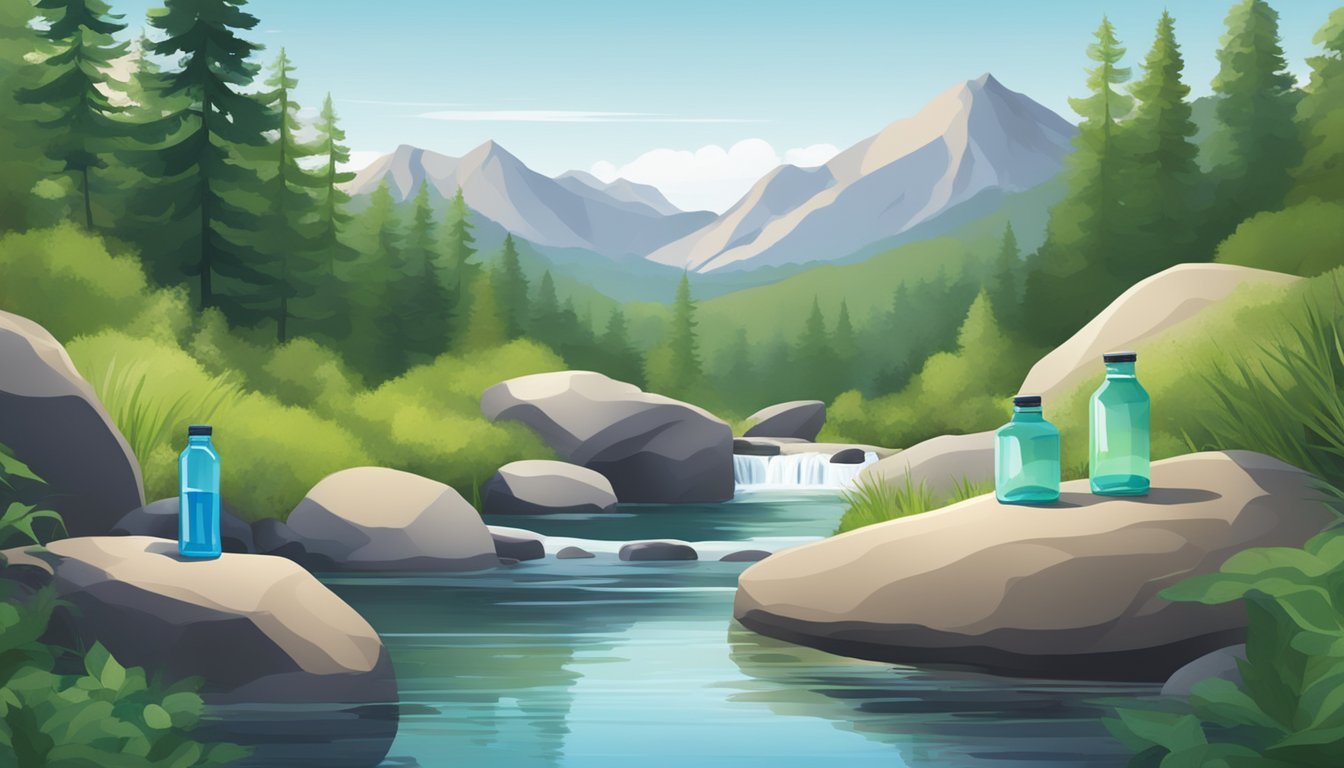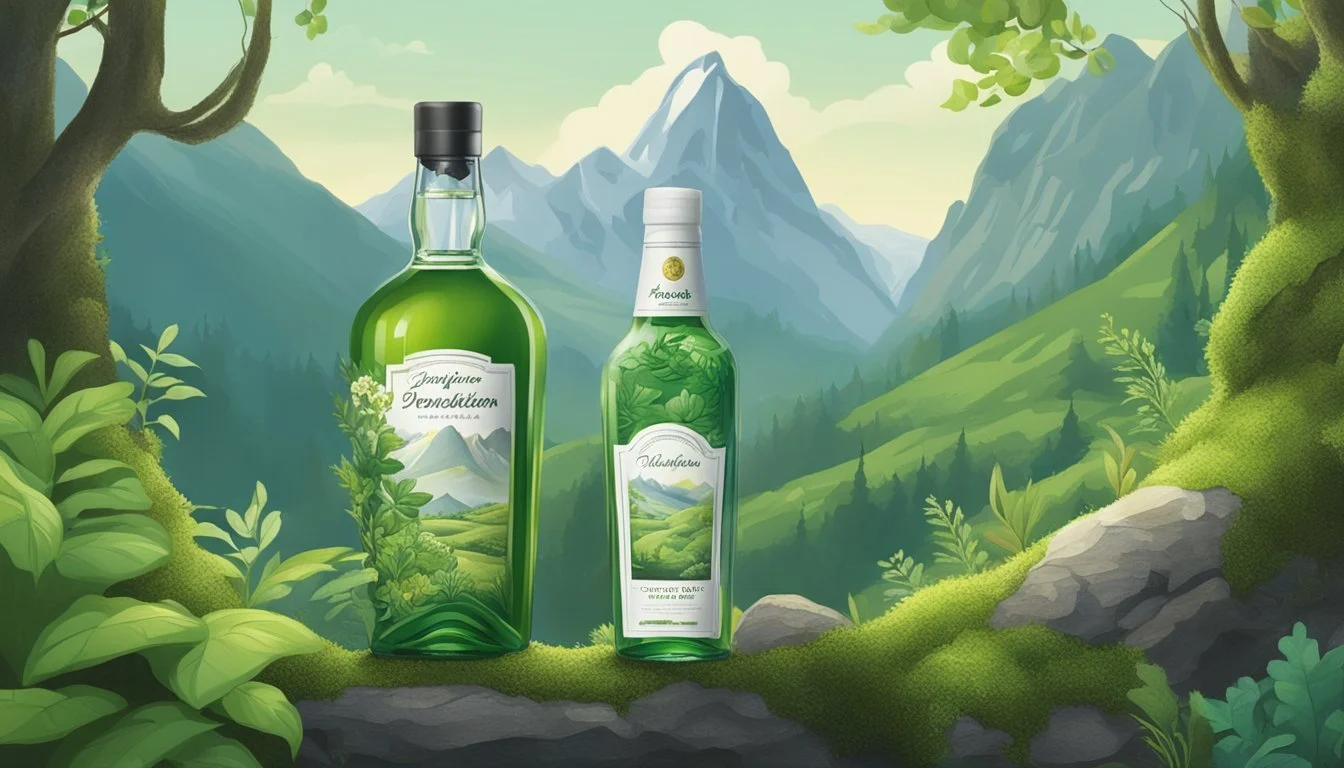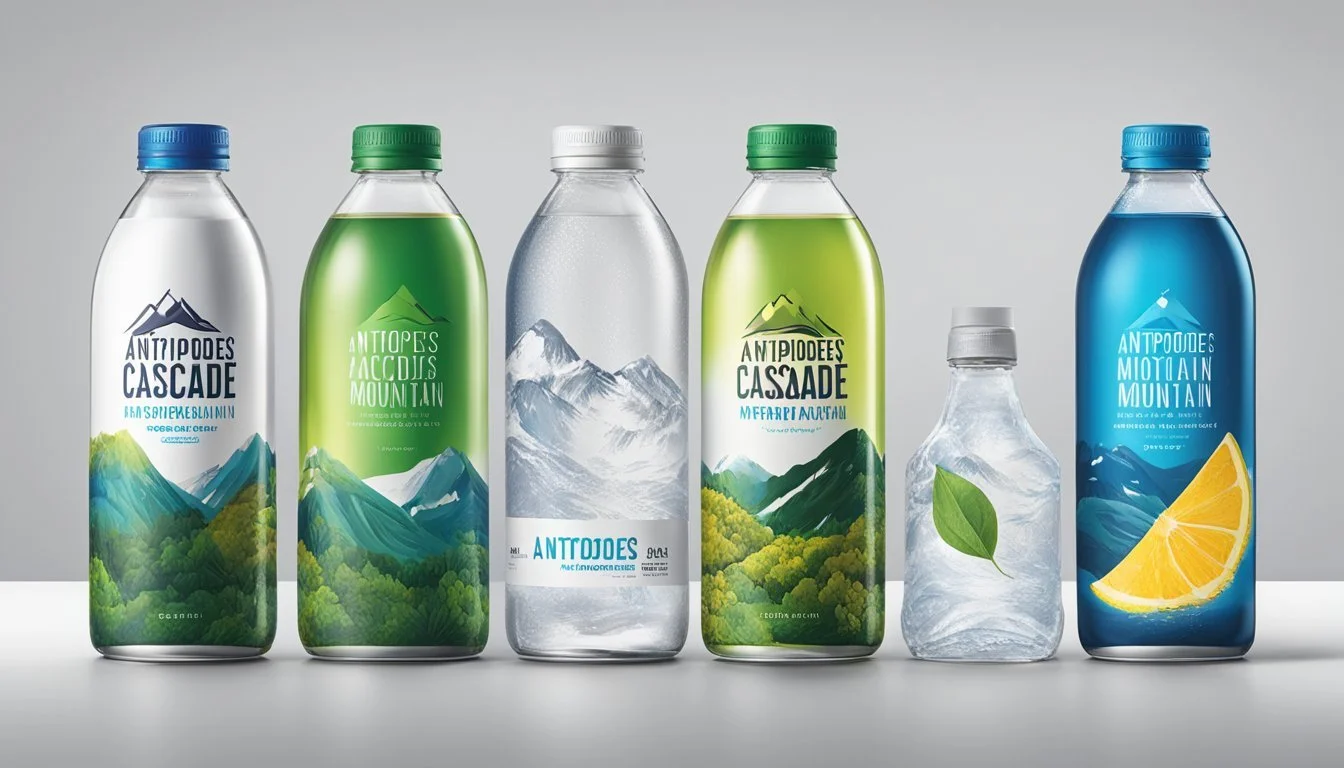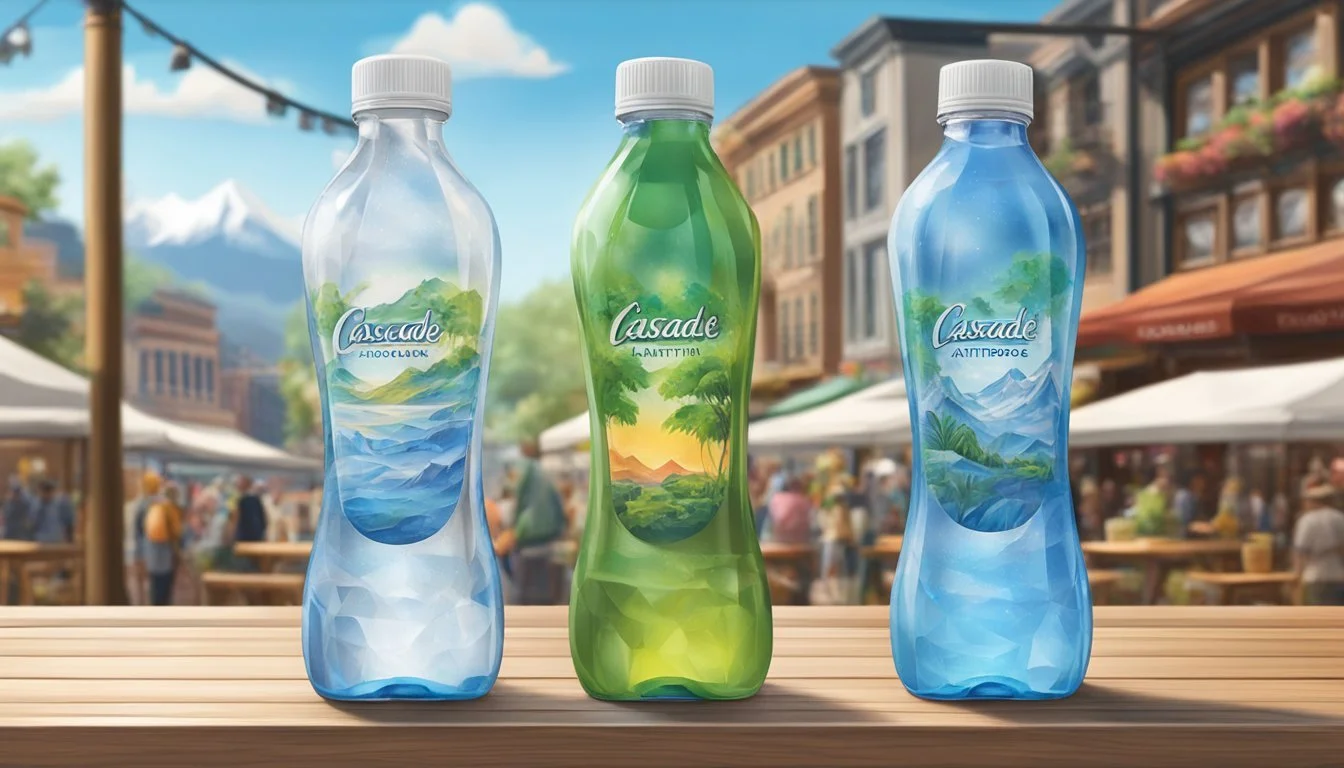Antipodes vs. Cascade Mountain
Which Bottled Water is Better?
When it comes to choosing the best bottled water, consumers often find themselves torn between various brands that promise purity, health benefits, and taste. Two such contenders are Antipodes and Cascade Mountain, both of which have carved out their reputations in the bottled water industry. Antipodes, known for its pristine source in New Zealand, offers a unique combination of balanced pH and low mineral content, making it a favorite for those who prioritize a clean, smooth taste.
Cascade Mountain, sourced from the Pacific Northwest, distinguishes itself with its naturally occurring minerals that contribute to a fresh and crisp flavor profile. Both brands cater to health-conscious consumers who value hydration and the quality of their drinking water. Antipodes's balanced pH and low mineral content make it an excellent choice for those seeking a neutral taste, whereas Cascade Mountain's mineral-rich content provides a distinct, refreshing experience.
For those evaluating which bottled water is better, it ultimately boils down to personal preference and the specific qualities one values in their hydration routine. Whether it's the clean, subtle taste of Antipodes or the invigorating, mineral-infused profile of Cascade Mountain, both brands offer exceptional options for staying hydrated. The article will delve deeper into these brands' distinct characteristics to help you make an informed choice.
Comparing Antipodes and Cascade Mountain
Antipodes and Cascade Mountain are two brands that offer premium bottled water, each distinguished by its unique sources and qualities. When choosing between them, it's essential to consider the brand profiles, water sources, and the flavor and mineral content.
Brand Profiles and Origins
Antipodes hails from New Zealand and is known for its pristine water sourced from deep aquifers. Established in 2003, the brand focuses on providing high-quality, naturally filtered water while maintaining environmental sustainability.
Cascade Mountain is sourced from the Cascade Range in the Pacific Northwest of the United States. The brand prides itself on its crisp, pure water derived from mountain springs, benefiting from natural filtration through volcanic rocks.
Sources of Water
Antipodes sources its water from an ancient aquifer located 327 meters below the earth's surface. The water undergoes minimal processing, ensuring that it retains its natural purity and mineral balance.
Cascade Mountain collects water from natural mountain springs at high elevations. The water is filtered naturally as it flows through volcanic rock formations, adding a unique mineral composition that enhances its purity and freshness.
Flavor and Mineral Content Comparison
Antipodes offers a clean, crisp taste, attributed to its low mineral content and natural filtration. The water has a neutral pH level, making it smooth and easy to drink without any aftertaste.
Cascade Mountain water is slightly more mineralized, providing a distinct, refreshing flavor with a hint of natural sweetness. The presence of electrolytes like calcium and magnesium contributes to its balanced, hydrating quality.
By comparing the brand profiles, water sources, and flavor and mineral content, consumers can make an informed choice between Antipodes and Cascade Mountain based on their preferences and needs.
Health and Hydration
Hydration and the presence of essential minerals and electrolytes are key factors influencing the choice between Antipodes and Cascade Mountain bottled waters. The acidity and alkalinity of these brands also play a role in their health benefits.
Health Benefits of Hydration
Staying hydrated is essential for maintaining bodily functions. Water helps regulate body temperature, facilitates digestion, and aids in nutrient absorption.
Both Antipodes and Cascade Mountain are reliable sources of hydration. Antipodes is known for its purity and has a naturally soft texture, which some find more pleasant to drink, encouraging better hydration habits. Cascade Mountain also boasts a clean taste with minimal aftertaste.
Importance of Minerals and Electrolytes
Minerals and electrolytes are crucial for maintaining balance within the body. These include calcium, magnesium, and potassium, which support muscle function, bone health, and they help prevent dehydration.
Antipodes is rich in natural minerals, offering a balanced profile that includes calcium at 7 mg/L and magnesium at 2 mg/L. This makes it a good choice for those looking to replenish these nutrients. Cascade Mountain also contains essential minerals but in slightly different proportions.
Acidity and Alkalinity in Water
The pH level of water can affect its taste and potential health benefits. Water with a pH level below 7 is acidic, while water with a pH level above 7 is alkaline.
Antipodes has a slightly alkaline pH of 7.8, which some believe supports better hydration and neutralizes acid in the body. Conversely, Cascade Mountain has a neutral to slightly acidic pH, usually around 7.2, suitable for those who prefer a more neutral taste.
In summary, choosing between Antipodes and Cascade Mountain involves considering hydration benefits, mineral content, and pH levels, each catering to specific needs and preferences.
Quality and Purity of Water
The quality and purity of bottled water depend on the purification processes, the type of water source, and the levels of contaminants present. Here, we compare Antipodes and Cascade Mountain across these critical factors.
Purification Processes
Antipodes uses a multi-step purification process, including reverse osmosis, which removes most impurities and total dissolved solids (TDS). The water then undergoes UV treatment, ensuring that any remaining microorganisms are eradicated. This results in exceptionally pure water with a stable pH level.
Cascade Mountain, on the other hand, relies primarily on natural filtration from its source in the Cascade Mountains. The water passes through natural rock and sand layers, which filter out many contaminants. Cascade Mountain also uses ozonation to ensure the water remains safe for consumption, preserving its natural mineral content.
Natural Spring Water vs. Purified Water
Antipodes is classified as purified water, meaning its source can vary, but it undergoes extensive filtration and treatment before bottling. This guarantees a consistent purity level regardless of the initial water quality. Key processes like reverse osmosis and UV treatment significantly contribute to its trusted reputation.
Cascade Mountain’s water is sourced directly from a natural spring, giving it a unique mineral profile and taste. Natural spring water is often preferred for its untouched and natural state, which is believed to offer health benefits due to essential minerals retained during the natural filtration process. Cascade Mountain’s water is not extensively processed, maintaining its natural characteristics.
Contaminants and Purity Levels
Antipodes maintains strict controls to ensure low contaminant levels, including regular testing for PFAS chemicals, lead, and other potential pollutants. This careful monitoring ensures the water's purity remains consistently high. The low TDS level in Antipodes makes it suitable for those who prefer minimized mineral content.
Cascade Mountain also regularly monitors its water for contaminants. The natural filtration system removes most harmful substances, but natural spring water may contain higher levels of total dissolved solids compared to purified water. These TDS contribute to the taste and mineral content, but they are within safe limits for consumption and often prized by consumers seeking natural water options.
Antipodes and Cascade Mountain excel in different aspects of water quality and purity, catering to varied consumer preferences.
Environmental Impact and Sustainability
Both Antipodes and Cascade Mountain bottled water brands are scrutinized for their eco-friendliness and adherence to sustainable practices. They each present unique approaches to reducing their environmental footprint, from packaging choices to compliance with environmental regulations.
Packaging and its Environmental Toll
Plastic bottles used by Cascade Mountain are a significant concern as they contribute to plastic waste and have high CO2 emissions during production. For every 50 oz of bottled water produced, up to 22 oz of CO2 can be emitted. Antipodes, on the other hand, often uses glass bottles which are more eco-friendly as they can be reused and recycled more efficiently than plastic. However, the production of glass bottles is also energy-intensive.
While PET plastic is recyclable, only a small percentage is actually recycled. This leads to an extensive amount of plastic waste. Glass bottles, despite their higher initial energy cost, tend to have a lower long-term environmental impact. The increase in reusable water bottle options and boxed water alternatives, such as those offered by some eco-friendly brands, highlights the industry's push towards sustainable packaging solutions.
Sustainable Practices in Bottling
Antipodes places a strong emphasis on sustainability by incorporating renewable energy sources in their bottling process. They aim to minimize their carbon footprint through various measures, such as using locally sourced materials and promoting recycling initiatives. Cascade Mountain is also making strides by investing in technology to reduce water and energy usage during production.
Additionally, both brands have implemented eco-friendly transportation methods. Using electric vehicles or optimizing delivery routes reduces overall emissions. These initiatives reflect a commitment to sustainability beyond just the product itself, encompassing the entire lifecycle of bottled water production.
EPA Standards and Compliance
The Environmental Protection Agency (EPA) sets strict standards for bottled water quality and environmental protection. Both Antipodes and Cascade Mountain are compliant with these guidelines, ensuring that their products are safe for consumers while also adhering to environmental laws. They routinely conduct tests to meet EPA requirements, including monitoring for contaminants and maintaining sanitary bottling facilities.
Compliance with EPA standards also means both brands have measures in place to mitigate their environmental impact. This includes proper disposal of waste materials and minimizing resource extraction. By adhering to these regulations, they contribute to environmental conservation efforts, ensuring their operations align with sustainable practices.
Trends and Consumer Preferences
Current trends in bottled water consumption prioritize variety, convenience, and quality. Consumers are increasingly influenced by tasting experts and prefer options that meet specific tastes and dietary needs.
Rising Trends in Water Consumption
Bottled water consumption has seen significant growth in the past decade. Global sales grew 73% from 2010 to 2020.
This rise is largely attributed to health-conscious consumers opting for water over sugary drinks. Additionally, the demand for pure and high-quality water sources, such as those from less contaminated regions, has increased.
Sparkling water, in particular, has gained popularity. Brands now offer various flavors and different mineral content to cater to diverse preferences. This trend reflects a shift towards personalized and healthier beverage choices.
Consumer Demand for Variety and Convenience
Consumers today expect bottled water brands to offer a range of options. Still and sparkling variants, different bottle sizes, and flavored water are now commonplace.
Convenience plays a critical role in purchasing decisions. Single-serve bottles and multipacks are popular among busy individuals who want easy access to hydration. Grocery stores often stock a broad selection to meet these demands.
Brand loyalty is often influenced by how well a brand meets these convenience and variety needs.
Influence of Water Tasting Experts
Water sommeliers have a growing influence on consumer choices. These experts highlight the subtle differences between water brands, much like wine sommeliers do with wines.
Their recommendations can elevate the perception of certain brands as premium choices. They often focus on factors such as pH levels, mineral content, and the source of the water.
Consumers looking for high-quality water often rely on these expert opinions to guide their purchases, especially when choosing between brands like Antipodes and Cascade Mountain.
Market Comparison and Availability
Examining Antipodes and Cascade Mountain reveals critical differences in their market penetration and availability. These factors influence consumer access and brand preference.
Bottled Water Brands in the Global Market
Antipodes, sourced from New Zealand, has carved a niche for itself with its premium positioning and unique artesian water. In contrast, Cascade Mountain, bottled in Butte Falls, Oregon, aims at sustainability and purity.
Brands such as Evian and FIJI dominate the premium segment in the global market, similar to Antipodes. Meanwhile, Mountain Valley and Essentia are key competitors for Cascade Mountain in the United States.
Noteworthy brands in this space also include Aqua Panna, Icelandic Glacial, Core Hydration, and VOSS, each targeting different market segments and ensuring varied consumer choices globally.
Availability and Accessibility
Antipodes availability is largely concentrated in upscale grocery stores and specialty retailers. Its presence is stronger in regions appreciating premium and exotic bottled water. This focus limits its mass-market reach but upholds its elite brand image.
Cascade Mountain aims for broader accessibility. Available in major grocery chains such as Costco and on online platforms like Amazon, it ensures that a wider demographic can access this sustainable option.
Accessibility varies significantly between these brands. Antipodes caters to a selective audience, while Cascade Mountain leverages mass retail channels for a more widespread presence.







